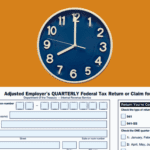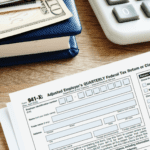The United States Supreme Court refused to hear a case brought by Amazon and Overstock.com challenging a 2008 New York law requiring online retailers to collect sales tax on purchases by New York State residents. The online retailers had argued that given the number of local jurisdictions with different sales tax rates, the law was overly complicated, unduly burdensome, and restricted the growth of online commerce. The law was upheld by New York’s highest court before the challenge was brought to the Supreme Court.
The Scope of the Decision
New York’s ruling went beyond a 1992 U.S. Supreme Court ruling requiring online retailers to collect sales tax in states where they have a physical presence. Under that rule, a retailer needed to have a physical store or office in a state to be required to collect sales tax. New York’s law included marketing efforts directed at a state and used affiliate marketing as a basis for establishing the company’s presence in a state.
In affiliate marketing, marketers are paid a commission on purchases made after a customer clicks a link from the affiliate’s site. Affiliates often consist of small websites with little oversight by the online retailer.
New York said the goal of its law was to restore a competitive balance between online and brick-and-mortar retailers. Many states have similar laws, and although the states that collect sales tax require residents to pay tax on online purchases, the reality is that if the sales tax is not collected at purchase, the residents do not later pay it.
By declining the case, the Supreme Court allowed all states to continue making their own laws regarding the collection of sales tax online. Congress could use its powers to regulate interstate commerce to enact changes, but appears inclined to allow states to pass their own laws. Earlier this year, the Senate passed legislation making it easier for states to collect sales tax on online purchases.
The Ruling’s Nationwide Effect on Retailers and Consumers
The court’s ruling leaves online retailers across the country faced with processing sales tax for every jurisdiction that collect sales tax. With tax rates differing by county or municipality, this is no easy task. Zip codes often span multiple sales tax rate zones, and there is no easy way for online retailers to determine the proper tax rate. Even if the location could be accurately determined, online retailers would still be required to pay each entity as well as keep up with any rate changes or tax holidays.
Consumers can expect to pay sales tax on all online purchases in the near future. With the largest retailers, such as Amazon and Overstock, already charging sales tax, “tax-free” options are fast disappearing. New laws making the collection of sales tax easier would eliminate any argument against requiring smaller retailers to also charge sales tax. The only good news may be that if the laws become widespread, consumers won’t have to fear that retailers might refuse to service their state because its laws are too strict.






 Steven N. Klitzner, P.A. is a tax attorney based in Miami, Florida. He has been practicing tax law for over 40 years, and currently holds a 10.0 rating by Avvo. Mr. Klitzner was appointed to the IRS Service Advisory Council in 2021 and is...
Steven N. Klitzner, P.A. is a tax attorney based in Miami, Florida. He has been practicing tax law for over 40 years, and currently holds a 10.0 rating by Avvo. Mr. Klitzner was appointed to the IRS Service Advisory Council in 2021 and is... 





